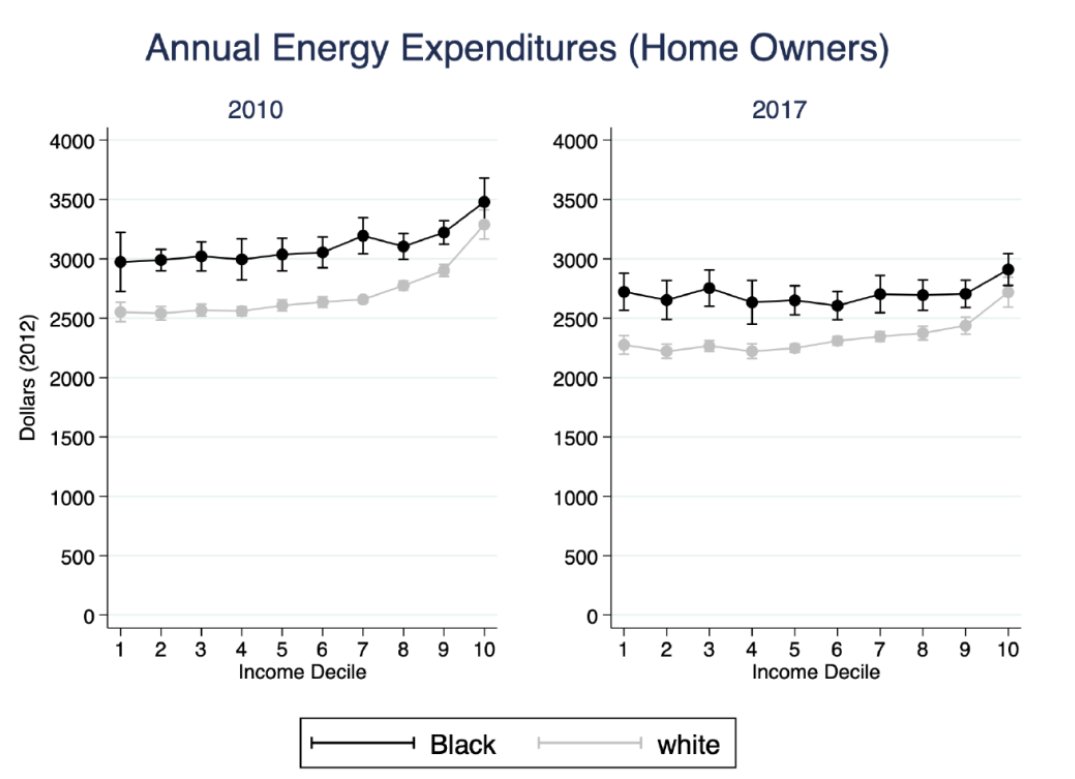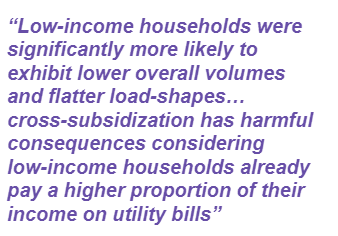Two really incredible research studies out of UCLA and UC-Berkley today--they're really changing how I think about racial injustice in our energy system.
First, Eva Lyubich from Berkeley: National data says black households pay more for electricity than white ones, full stop, and the problem is worse at lower incomes (she controls for home type & age here): https://haas.berkeley.edu/wp-content/uploads/WP306.pdf
She finds Black households are more likely to have housing stock quality issues (ie drafty homes, older appliances), and more likely to sustain the impacts of energy security (threat of disconnection, foregoing necessities to pay bills)
This is all consistent with work that energy justice scholars @tgreames and Diana Hernandez have done on this topic. They remind us that the energy system is embedded in a material and social world that discriminates against people of color.
But now: enter this UCLA study, which shows that households in disadvantaged communities actually use _less_ energy than ones in wealthy communities, and they also have less access to tech like solar that can cut costs: https://www.latimes.com/environment/newsletter/2020-06-25/will-the-rich-continue-to-be-the-main-beneficiaries-of-californias-clean-energy-future-boiling-point.
Add it to the list: Our most vulnerable neighbors use less energy, but pay more (in cash and in bearing the brunt of pollution) for it. But Fournier et al's idea of the "sufficiency" versus "excess" is most interesting to me.
In disadvantaged households, kWh are used to meet basic needs (not as true in a McMansion with a big-screen TV). Making energy more affordable might result in a material change to quality of life for a disadvantaged households, but not for rich folx.
It's the 'social welfare function' of energy--for those with the least, every marginal benefit matters more. And it should be used to direct how we change our energy system: Those who suffer the most now also stand to benefit the most from the clean energy transition.
And to add one more thing from the deep regulatory nerd brain: A study in Chicago found that low-income customers also cost less to serve than other customers! That paper's here: https://www.citizensutilityboard.org/wp-content/uploads/2019/06/ClusterAnalysisFinal.pdf

 Read on Twitter
Read on Twitter



